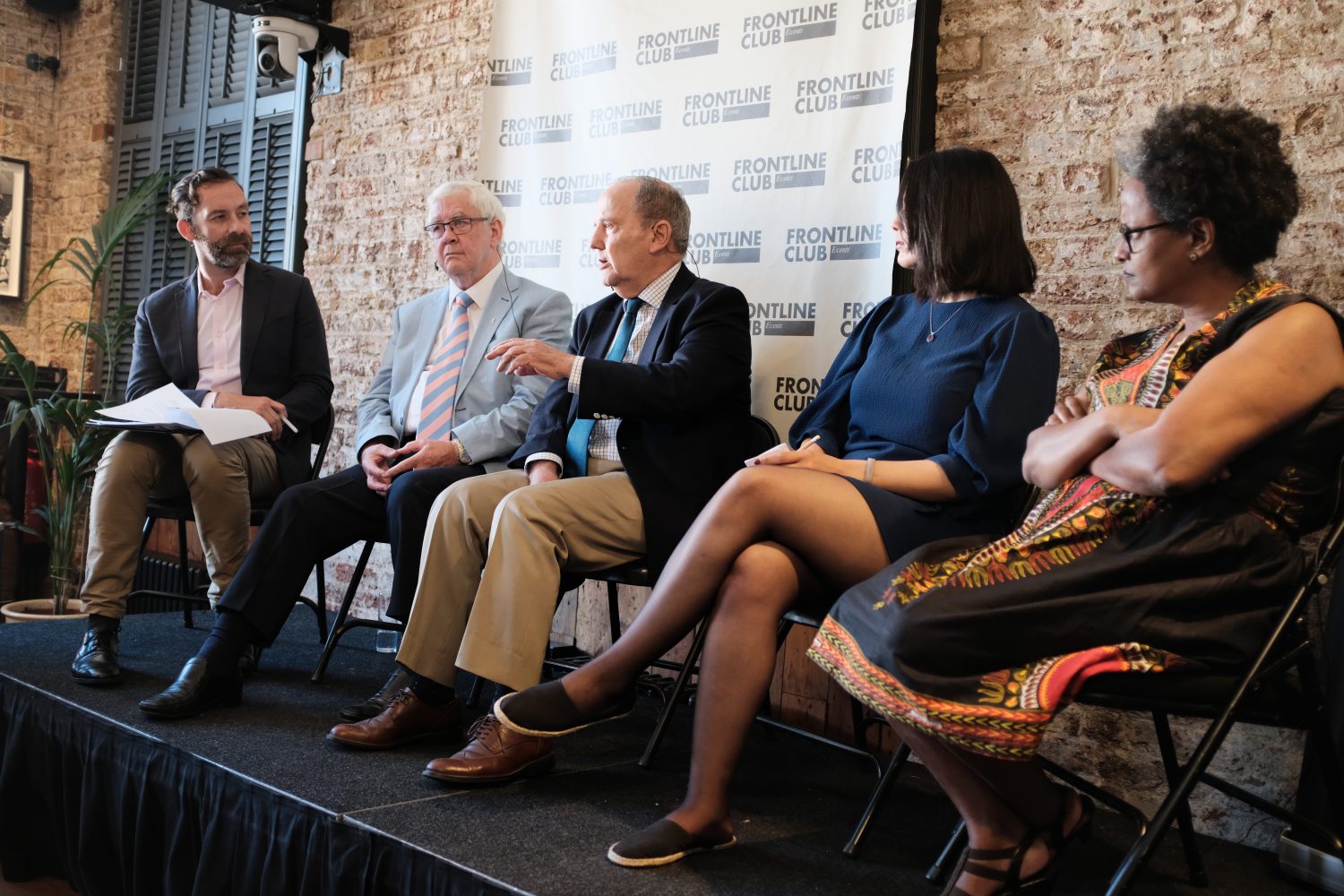
Watch it on YouTube: Discussion with ‘Hooded Man’ Francie McGuigan and former UN expert on Torture Juan Méndez
On 11 July 2018, REDRESS convened a high-profile panel discussion with survivors and human rights experts at the Frontline Club in London.
A recording of the discussion Breaking the Legacy of Torture: from Northern Ireland to the Age of Trump is now available on our YouTube channel here.
The discussion took place against the backdrop of a visit to the United Kingdom by US President Donald Trump, who has openly endorsed torture, and the release of two parliamentary reports, which found British intelligence agencies to be complicit in hundreds of incidents of torture and rendition.
The panellists discussed the long-term effects of torture, its damaging repercussions on the rule of law and the importance of holding perpetrators to account to break the legacy of torture.
Speaking at the event were:
- Professor Juan Méndez, the former United Nations Special Rapporteur on Torture, who was tortured during Argentina’s Dirty War. During his six-year mandate, Professor Méndez repeatedly sought a visit to Guantanamo Bay, which the US government never allowed, and he has been an ardent advocate for ensuring full accountability for human rights violations committed by the USA and other states after 9/11.
- Mr Francie McGuigan, one of the surviving Hooded Men, who were subjected to five sensory-depravation techniques whilst interned by the British army without trial in 1971, during the Northern Ireland conflict. He will speak publicly in London about his torture for the first time. The Hooded Men recently sought to reverse the landmark 1978 judgment from the European Court of Human Rights, which defined these techniques as ill-treatment but not as torture, after new evidence revealed the severe long-term effects that “deep interrogation” had on its victims. The 1978 judgment has been relied on by governments around the world to justify similarly brutal practices, including the ‘enhanced interrogation’ techniques used by the USA after 9/11.
- Ms Yemi Hailemariam, the wife of political activist Andy Tsege, who spent four years on death row in Ethiopia after being tried under the draconian Ethiopian anti-terrorist laws, which have been used by the Ethiopian government since 2009 to crush dissent. Tsege was released in May 2018 following wide political reforms launched by the new Ethiopian Prime Minister Abiy Ahmed, who has vowed to end the systematic use of torture against political opponents.
- Ms Magdulein Abaida is a Libyan women’s rights activist who had to flee Libya in 2012 after being subjected to ill-treatment and death threats due to her work. Torture and arbitrary detention continue to be widespread in Libya, seven years after the fall of the authoritarian leader Muammar Gaddafi, with women human rights defenders being particularly vulnerable to reprisals.
- Mr Rupert Skilbeck, Director of REDRESS. Mr Skilbeck is a barrister who specialises in human rights law and international criminal law, and who has directed strategic litigation around the world. Before joining REDRESS, he was the Litigation Director at the Open Society Justice Initiative, where he oversaw human rights litigation in more than 100 cases including torture, deaths in custody, discrimination, fair trial rights, corruption, national security, and international criminal law.
Photo: ©Jim Goldberg/Magnum Photos
